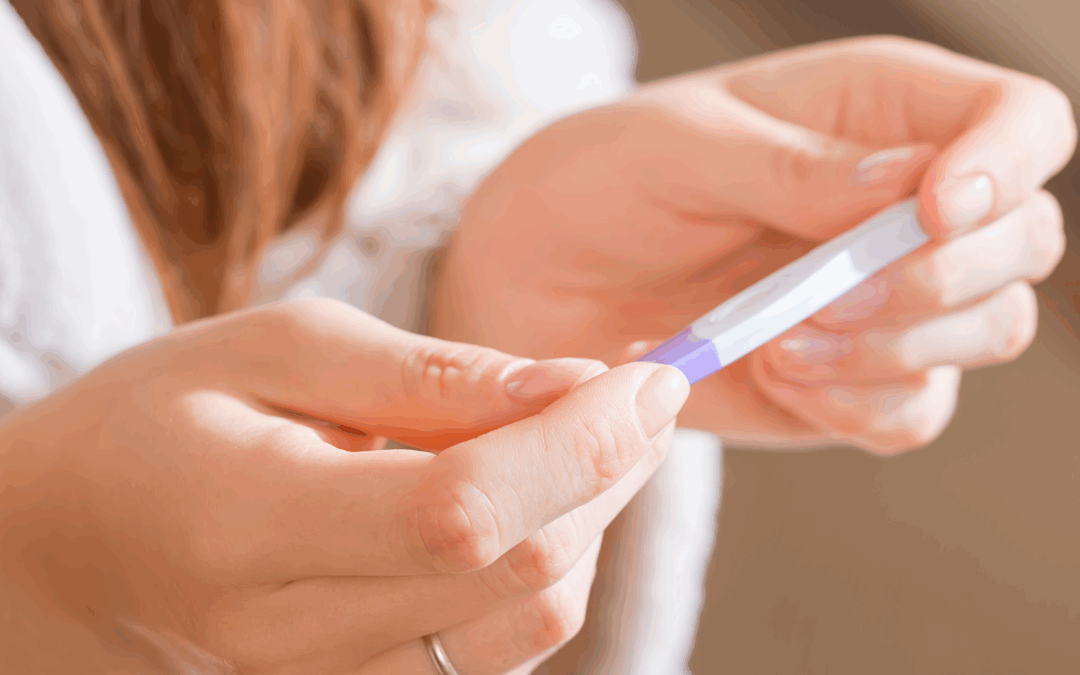A chemical pregnancy can bring a swirl of questions and emotions. What caused it? Were there signs I missed? Can I get pregnant again?
You don’t have to work through these thoughts alone. At CAPS, we’re here to listen, answer your questions, and help you navigate this experience with compassion.
What is a Chemical Pregnancy?
A chemical pregnancy is an early miscarriage that happens within the first five weeks of pregnancy.
In this stage, an embryo begins to develop and may implant in the uterine lining, but it stops growing soon after. Because this happens so early, many women never realize it occurred.[1]
The term “chemical pregnancy” refers to the hormones in your body that cause a positive test result. Early on, your body produces human chorionic gonadotropin (hCG), the hormone that signals pregnancy. When the embryo stops growing, hCG levels drop, often leading to a negative test shortly after.[2]
Common Signs of a Chemical Pregnancy
The only way to confirm a chemical pregnancy is with testing.[3] Still, there are some common signs to watch for, including[4]:
- A positive pregnancy test without typical early pregnancy symptoms
- A positive test followed by a negative result a few days or weeks later
- A positive test followed by your period starting
- A period that arrives about a week later than expected
- An unusually heavy period with more intense cramps
Why Does a Chemical Pregnancy Happen?
The exact cause of a chemical pregnancy isn’t always clear. Experts believe it may be related to genetic abnormalities in the embryo.
In other cases, the embryo may struggle to implant properly in the uterus, halting its growth. As a result, hCG levels decline, and the next pregnancy test will be negative.[5]
How Common Is a Chemical Pregnancy?
Chemical pregnancies are more common than most realize. Approximately 25% of pregnancies end in miscarriage before 20 weeks, and about 80% of those happen early, often as chemical pregnancies.[6]
Many women experience a chemical pregnancy without even knowing it.[7] Certain factors may increase your likelihood of a chemical pregnancy, including[8]:
- Hormonal imbalances
- Uterine abnormalities
- Conditions like thyroid disorders, polycystic ovarian syndrome (PCOS), or diabetes
- A sexually transmitted infection (STI)
- Maternal age over 35
Can I Get Pregnant After a Chemical Pregnancy?
Yes. Many women go on to have healthy pregnancies after experiencing one. A single chemical pregnancy does not mean you can’t carry to term.[8]
If you experience repeated early losses, it may be helpful to see a fertility specialist for further evaluation.[9]
Coping and Finding Support
Your reaction to a chemical pregnancy may be very personal. Some women feel relief; others experience deep grief. Every feeling is valid.
You’re not alone. We’re here to provide both emotional support and practical answers. Whether you need to talk with someone, ask medical questions, or simply have a safe space to process at CAPS we’re ready to walk alongside you.
Where Can I Find Free Pregnancy Services in San Diego, California?
If you think you might be pregnant or have questions about your reproductive health CAPS offers free pregnancy tests and ultrasounds in a confidential, caring environment
Call us at (619) 337-8080 or schedule your appointment online today! All services are free and confidential.
This article is for informational purposes only. CAPS does not provide treatment for ectopic pregnancy, only free pregnancy tests and ultrasounds to confirm the state of your pregnancy. Upon the confirmation of the ectopic pregnancy, please meet with your primary healthcare provider as quickly as possible to receive treatment.
Sources
- Chemical Pregnancy: Causes, Symptoms & Treatment. Cleveland Clinic. (2021, December 11). https://my.clevelandclinic.org/health/diseases/22188-chemical-pregnancy#management-and-treatment
- See source #1.
- See source #1.
- See source #1.
- See source #1.
- See source #1.
- See source #1.
- See source #1.
- See source #1.

